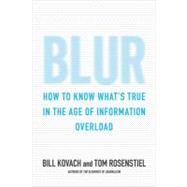
In his 50-year career, Bill Kovach has been chief of the New York Times Washington Bureau, served as editor of the Atlanta Journal-Constitution, and curated the Nieman Fellowships at Harvard University. He is founding chairman of the Committee of Concerned Journalists and senior counselor for the Project for Excellence in Journalism. In 2004, he was named to the John Seigenthaler Chair of Excellence in First Amendment Studies at Middle Tennessee State University.
A journalist for more than 30 years, Tom Rosenstiel worked as chief congressional correspondent for Newsweek and as a media critic for the Los Angeles Times and MSNBC's The News With Brian Williams. His books include Strange Bedfellows and We Interrupt This Newscast. Rosenstiel is vice chairman of the Committee of Concerned Journalists, and director of the Project for Excellence in Journalism.
Together, Kovach and Rosenstiel have authored two books: The Elements of Journalism, winner of the 2002 Goldsmith Book Prize from Harvard University, and Warp Speed: America in the Age of Mixed Media.
| How to Know What to Believe Anymore | p. 1 |
| We Have Been Here Before | p. 12 |
| The Way of Skeptical Knowing: The Tradecraft of Verification | p. 26 |
| Completeness: What Is Here and What Is Missing? | p. 57 |
| Sources: Where Did This Come From? | p. 74 |
| Evidence and the Journalism of Verification | p. 94 |
| Assertion, Affirmation: Where's the Evidence? | p. 121 |
| How to Find What Really Matters | p. 146 |
| What We Need from the ôNext Journalismö | p. 170 |
| Epilogue: The New Way of Knowing | p. 198 |
| Appendix | p. 205 |
| Acknowledgments | p. 209 |
| Notes | p. 211 |
| Index | p. 219 |
| Table of Contents provided by Ingram. All Rights Reserved. |
The New copy of this book will include any supplemental materials advertised. Please check the title of the book to determine if it should include any access cards, study guides, lab manuals, CDs, etc.
The Used, Rental and eBook copies of this book are not guaranteed to include any supplemental materials. Typically, only the book itself is included. This is true even if the title states it includes any access cards, study guides, lab manuals, CDs, etc.